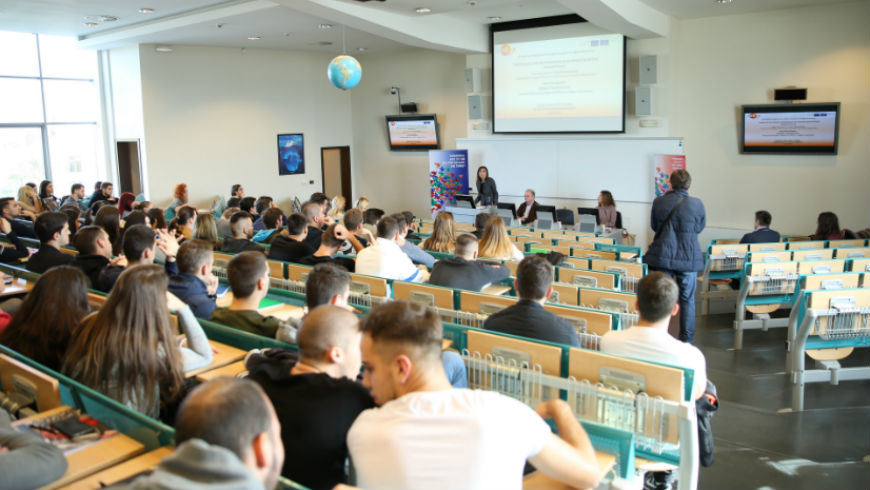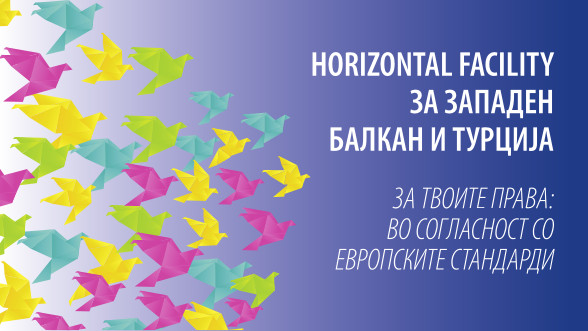On 10 November, around 100 students and teachers of the University of Donja Gorica in Podgorica (UDG) joined a Council of Europe expert specialised in ethics in higher education, Professor Dennis Farrington to debate on academic policies.
Hosted at the University of Donja Gorica and organised by the by the Action “Strengthening Integrity and Combating Corruption in Higher Education”, co-funded by the European Union and the Council of Europe and implemented by the Council of Europe, the event was designed to provide students with a deeper understanding of academic integrity issues, and in particular plagiarism in relation to the national context, the regional, and international perspective.
Maja Drakic-Grgur, lecturer at UDG noted that the debate came at the right moment given that their quality assurance system, which will involve academic integrity issues, is currently under preparation.
Vesna Atanasova from the Council of Europe Education Department emphasised that the Council of Europe`s efforts and initiatives are focused on quality education which inter alia entails education free of various forms of corruption.
Professor Farrington underlined the current effort of the Ministry of Education to develop the law on academic integrity. He also presented the academic integrity "maturity” score for Montenegro saying that it falls in the lower half of the table for maturity. It faces problems such as deficiencies in the software’s use to detect plagiarism, transparency, prevention strategies, etc. Speaking about specific aspects of academic misconduct, Farrington highlighted the industry of ghost-writing as a leading problem in the world.
Students were very much interested in discussing personal experiences when it comes to plagiarism, the role of mentors when examining theses and the possible ways of fighting plagiarism. In closing the debate, it was reiterated that the focus should be on the preventive side, such as on educating and changing the mind-set of academic staff and students, rather than focusing on repressing their conduct.



